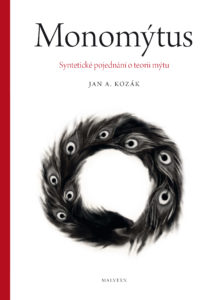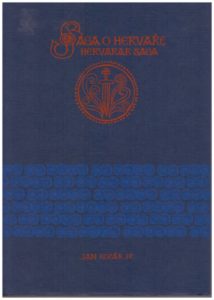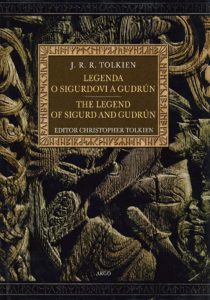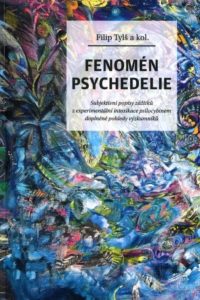Mgr. Jan A. Kozák, PhD
Briefly and informally about me
I was born in 1979 in Prague, during the period of deep “normalization” (the intensification of communist regime after the Prague Spring). My father was a political prisoner and an anti-regime minded person, which has remained with him to this day (www.gnostica.cz). I spent my childhood in Letná in Prague. Thanks to my father’s interest in oriental philosophy and the fact that my mother was (and is) an antiquarian, I was surrounded at a young age by books on mythology, religion, old prints and all sorts of samizdat writings in the style of “native Czech mysticism and philosophy”. But the most precious of all samizdat for me at that time was The Lord of the Rings, which my parents acquired from the dissident circles. The solemnity, kindness and beauty of that book had a lasting impact on me and still nourishes me today. Aside from The Lord of the Rings, the books that most influenced me as a child were The Neverending Story (Michael Ende), The Thirteen Clocks (James Thurber) and Journey to the West (Wu Cheng’en).
In high school, I went to Jan Kepler Grammar School, which was (and is) an extremely stimulating environment. Unable to completely separate myself from that great place, I returned there periodically for years after graduation to teach World Religions and Fundamentals of Linguistics electives in an effort to help inspire the next class of students. The literature that most influenced me in high school included, on the one hand, philosophers like Friedrich Nietzsche and Ladislav Klíma, as well as C.G. Jung and Mircea Eliade, and I also read Carlos Castaneda and Stanislav Grof with enthusiasm. And besides that, countless classic science fiction and fantasy authors.
In 1998, I was accepted to study a combination of Latin and Religious Studies at the Faculty of Arts, Charles University. The old dead languages have always fascinated me, and so, in addition to Latin and Greek, I also learned Sanskrit – first at home with my father, later at the faculty – as well as Biblical Hebrew and finally Old Norse. In all these languages I eventually worked my way up to independent readings of primary sources, which was the real reward for the work, a kind of magical journey into other worlds. During my studies I discovered historical fencing and soon pursued it with an intensity that rivaled (and sometimes complicated) my academic progress. More on that in my personal medallion here.
 I have always had comparative tendencies in religious studies, not enjoying being a detail-expert on one little scripture that he knows everything about, even though, thanks to a fair philological grounding in Latin, I have come to understand that sometimes it really is an “iota,” a single misinterpreted letter, which matters. At first I specialized in Indian religions in addition to the Classics, but after a few years I changed my specialization to Old Norse culture – influenced both by Jiří Starý’s teaching and my Tolkienist side.
I have always had comparative tendencies in religious studies, not enjoying being a detail-expert on one little scripture that he knows everything about, even though, thanks to a fair philological grounding in Latin, I have come to understand that sometimes it really is an “iota,” a single misinterpreted letter, which matters. At first I specialized in Indian religions in addition to the Classics, but after a few years I changed my specialization to Old Norse culture – influenced both by Jiří Starý’s teaching and my Tolkienist side.
My knowledge of the source languages and my original specializations in Rome and India left me with the ability to get a basic overview of the Indo-European cultural complex. Theoretically-methodologically, I am perhaps most influenced by the religious scholar Radek Chlup, whose systematic thinking about the function of myth and ritual has always been a healthy complement to my intuitive and psychologizing perspective.
The second distinctive line that I have developed over the years has been a depth-psychological approach, especially the ideas of the classics, Freud and Jung. I studied the works of both authors and developed my own amalgam of understanding in which these two authors complemented each other excellently with the models developed by anthropology, semiotics and phenomenology. The analytical psychologist Martin Skála was the impetus for my Jungian orientation, and to him was addressed the first draft of the text that eventually became a book called Monomyth (Malvern 2021).

Parallel to my academic and fencing path, I have cultivated fantasy work throughout my studies, which I nevertheless see as a form of active imagination from the perspective of psychology and as modern myth-making from the perspective of religious studies.
Thanks to the unwavering support and collaboration of Jakub Hruska, the world of Sirania (www.siranie.net) exists, an ever-enriching and evolving alternate universe with its own history, play of forces and stories. Lucie Lukačovičová, among many others, has contributed to this creation by writing a number of short stories set in the world of Sirania. Together with Jan Dřevíkovský, we created a mystifying comic called The Sprouting of the Eye, which was once published in print, but its sequel was never completed. Several board games that we developed in the Circle of Friends also date from a similar era – the game Dorn and its expansion and the game Ekopolis.
In 2009, I started my PhD studies, during which time I focused on a detailed study of Old Norse mythology. By that time, my two-volume book devoted to the Saga of Hervör, the Old Norse story of a heroic warrior woman and her son Heidrek, had already been published. The first volume is a bilingual (Old Norse-Czech) edition of the text, and the second volume is a series of five separate studies on the saga, covering a range of topics (riddles and kennings, female warriors, Old Norse mounds, the battle of the Goths and Huns, etc.).

Not long after, I was entrusted with the translation of two of Tolkien’s epics, The Legend of Sigurd and Gudrun and The Fall of Arthur. I pushed for both books to be published bilingually as well. The results of my PhD project were then published in book form as Óðinn: Myth, Sacrifice and Initiation. During my doctoral studies, I discovered two authors who influenced me deeply, the Slovenian philosopher Slavoj Žižek and the American neuroscientist and physicist Douglas Hofstadter, whose Gödel, Escher, Bach still strikes me as an incomprehensible miracle.
Not long after completing my PhD, I was awarded the prestigious Marie Sklodowska-Curie Fellowship and spent the years 2018-2020 at the University of Bergen, Norway, where I explored body symbolism and metaphor in Norse mythology. I organised or co-organised a number of workshops and conferences as part of the project, and it was a very international time indeed (I burnt through a lot of aviation petrol while travelling the world in a very non-organic way).
After returning from Norway, I joined the Department of Philosophy and Religious Studies at the Faculty of Arts, Charles University, where I continue to work to this day.
Along with my return to the Czech Republic in 2020, I began training in analytical psychology, a field to which I have always felt deeply connected. Since 2022, I have had a private psychotherapy practice.
In 2022, I was awarded the Snorri Sturluson Fellowship, which allowed me—though only for a few months—to return to Iceland, a place so dear to my heart. For some time, I stayed at Snorrastofa, the site where Snorri Sturluson himself once lived.
Since 2020, I have also been a regular guest in the media (Czech Radio, Czech Television, Radio Wave, and various YouTube podcasts), speaking on topics I focus on—myth, mythology, Old Norse religion, Tolkien, and conspiracy theories. I have also produced, in collaboration with the Prague City Library, several educational YouTube videos.

A playlist of all the available videos on YouTube can be found HERE.
Because of the similarities between ancient myths and contemporary conspiracy theories, I began working on them professionally in 2021 and, together with colleagues, founded the Conspiracy Theory Research Group, which brings together scholars across a range of disciplines, many of whom have been working on the topic much longer than I have. Our intention is not to debunk conspiracy theories, but to try to understand their formation and operation, much as religious scholars do with religion and mythology. Videos on this topic can also be found HERE.
In 2023, after many years of preparation, a fantasy work from the world of Sirania was finally published—beautifully produced with illustrations by Jakub Hruška and Jiří Karban—by Malvern Publishing. The book, titled The Saga of Lundir, Son of Winter, Astromancer and Mason, received the 2024 Magnesia Litera Award for Fantasy. It was praised for its intricate conception: the book is presented as a scientifically reconstructed manuscript from another world, complete with a scholarly preface and extensive appendices.
What remains are a few small details that did not fit into the overview:
Psychedelics / entheogens

I have observed in myself an interest in self-development and self-transcendence since childhood. The world of normality both frightens and exhausts me, and I cannot find meaning within it—though I understand that it must somehow exist so that things may “function.” Yet functioning is not the same as living fully. From this comes my turn toward the study of religion, toward fantasy, and toward the exploration of depth psychology.
At the age of nineteen (in 1998), as part of my self-exploration, I participated in holotropic breathwork—an experience that proved rather non-transformative. A few years later, however, I had my first LSD session, which was profoundly transformative. I realized that ordinary consciousness is only one of many possible modes of thinking, and through that realization, entirely new horizons of experience and reflection opened to me. Over the years I have undergone numerous consciousness-altering sessions, not only with the help of psychedelics but also, for example, through sensory isolation in darkness (dunkeltherapy). I regard experiences of this kind—as do the classics of psychedelic research—as extraordinary tools for revealing aspects of the human psyche that are otherwise generally inaccessible.
When I learned about the existence of the Czech Psychedelic Society (https://czeps.org/), I immediately became a member, for its goals are also mine: to work with consciousness-altering substances in a controlled, civilized, and cultivated manner—whether the aim is to help people suffering from depression, to expand horizons and ease the experience of those in palliative care, or to support the self-development of healthy individuals. In this respect, we are, I believe, still at the very beginning of the path. Within CzePS I became a member of the professional section and contributed one chapter to the book The Phenomenon of Psychedelia and two chapters to Psychedelics and Psychonautics, which also features my visual art.
Pirate Party
The Pirate Party’s program has been close to me since the party’s very inception. I attended several of its early gatherings in the beginning, and in the first elections I was already a candidate—mostly just to fill out the ballot, with little chance of being elected. In the following years, I remained a supporter and eventually became a member. Despite the fact that my values align more with the early radical spirit of Piratism than with the party’s current conciliatory centrism, I still consider the Pirates to be the best-organized and most democratic political party in the country. In recent years, however, the party has been moving further away from its original ideals, and in 2024 I decided to leave it.